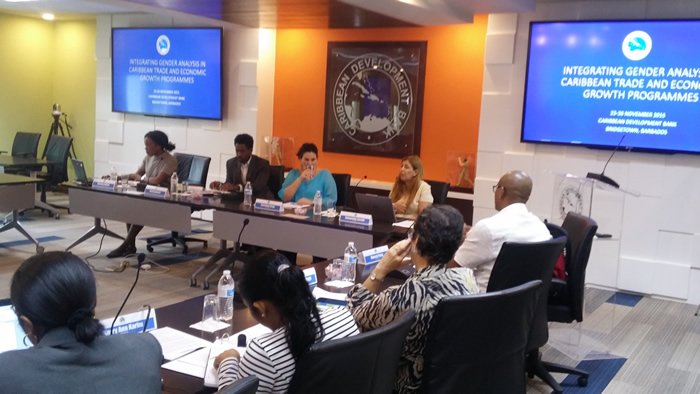UNCTAD partnered with the Caribbean Development Bank to train senior trade officers from the region on integrating gender analysis in Caribbean trade and economic growth programmes.
The Caribbean region has faced declining levels of international competitiveness over the past three decades. This has led to a prolonged period of economic stagnation--the last region-wide boom was in the 1980s--and weak development outcomes across Caribbean states.
Although these challenges affect all firms in the region, a gender analysis has shown that women-owned firms are characterized by even lower levels of productivity than those owned by men, and this has drawn attention to the gendered structure of the Caribbean workforce and the implications of gender-based inequities.
Recognizing that 'gender-blind' policies can perpetuate gender inequalities, UNCTAD and the Caribbean Development Bank organized a workshop for senior trade officers from the region on "Integrating Gender Analysis in Caribbean Trade and Economic Growth Programmes". The workshop was held in Barbados from 23 to 26 November 2015.

In addition to helping policymakers understand the different ways trade policies and programmes affect women and men, the workshop focused on identifying the main challenges they face to formulating trade policies that are more gender sensitive.
The 12 senior trade officers from 9 Caribbean countries who attended the workshop said that one of the main challenges they face is their countries' limited capacity to analyse the relationship between trade and gender and to recognize the different roles played by men and women in the economy.
They also highlighted the limited availability of sex-disaggregated data, the weak political commitment to integrating gender considerations in trade policies and the lack of policy coordination.
To overcome these challenges, the participants recommended that their governments invest more in training policymakers on why it is important to incorporate gender in trade policies, and how to do so. Likewise, they agreed on the need to strengthen ministries and government agencies' ability to analyse the impact of trade policy on women.
The senior trade officials also highlighted the need to more actively engage civil society and the private sector when formulating, implementing, and monitoring and evaluating policies and programmes.
Finally, in their view, more relevance and political influence should be granted to the national institutions in charge of gender issues.


